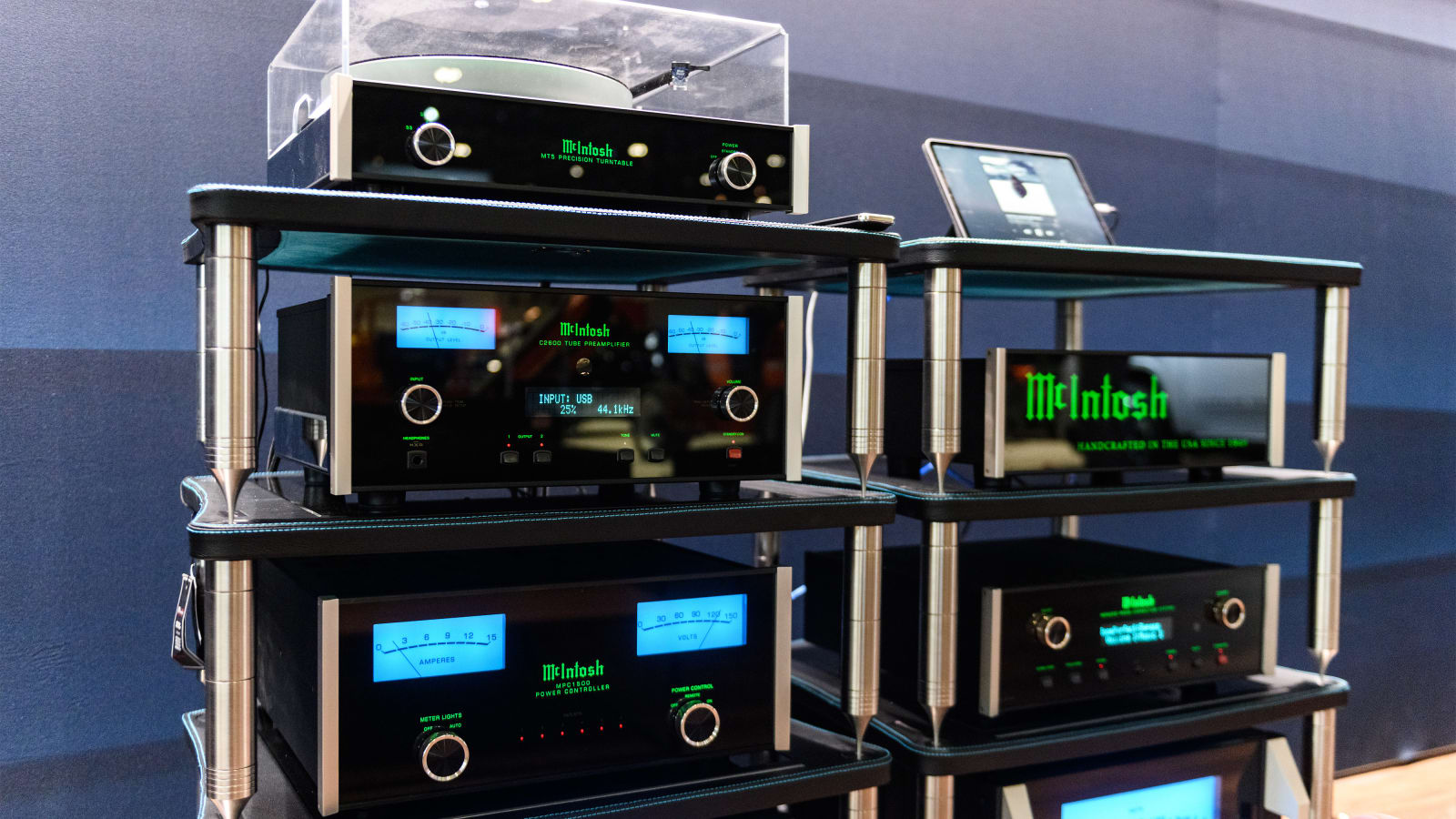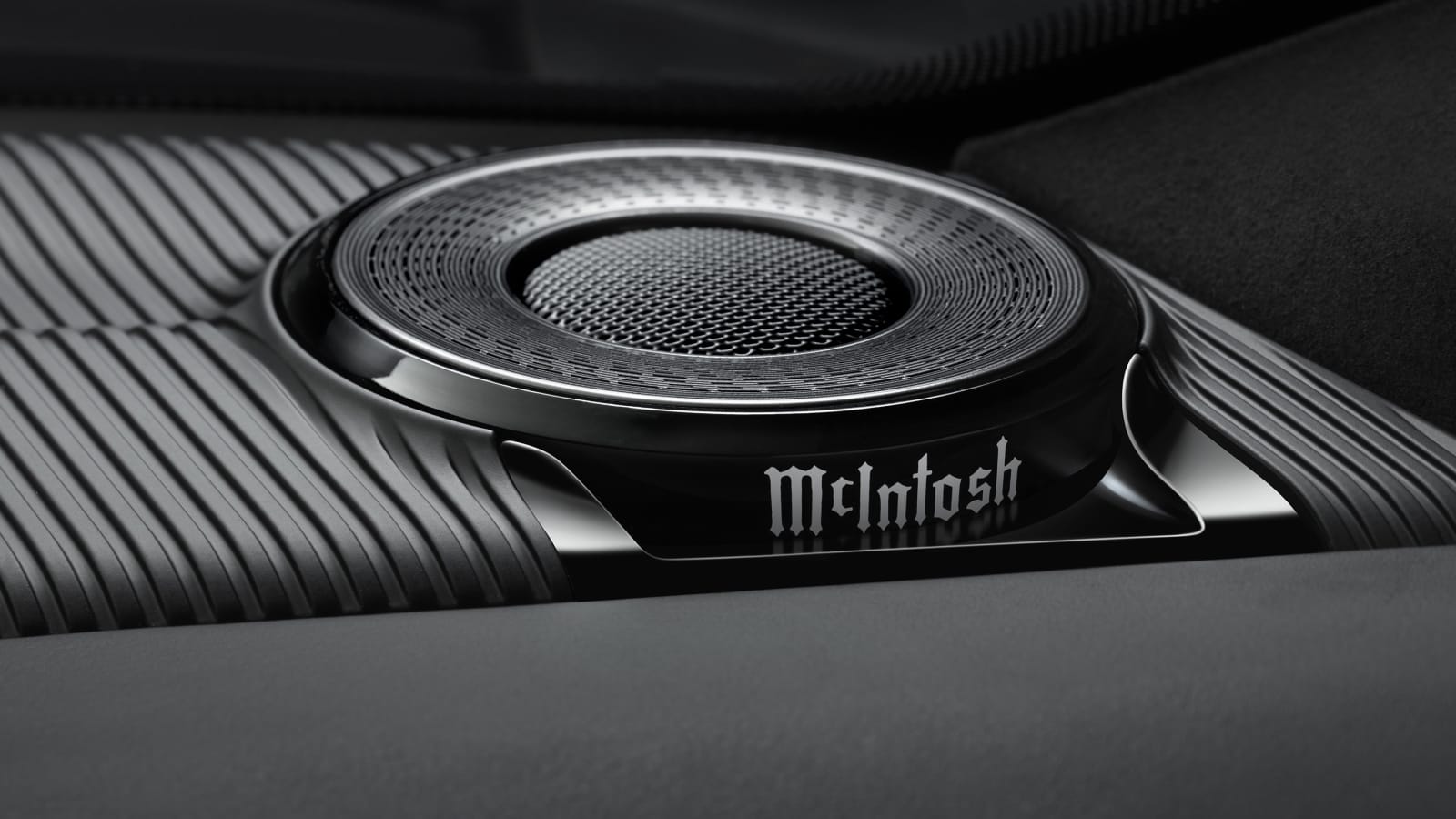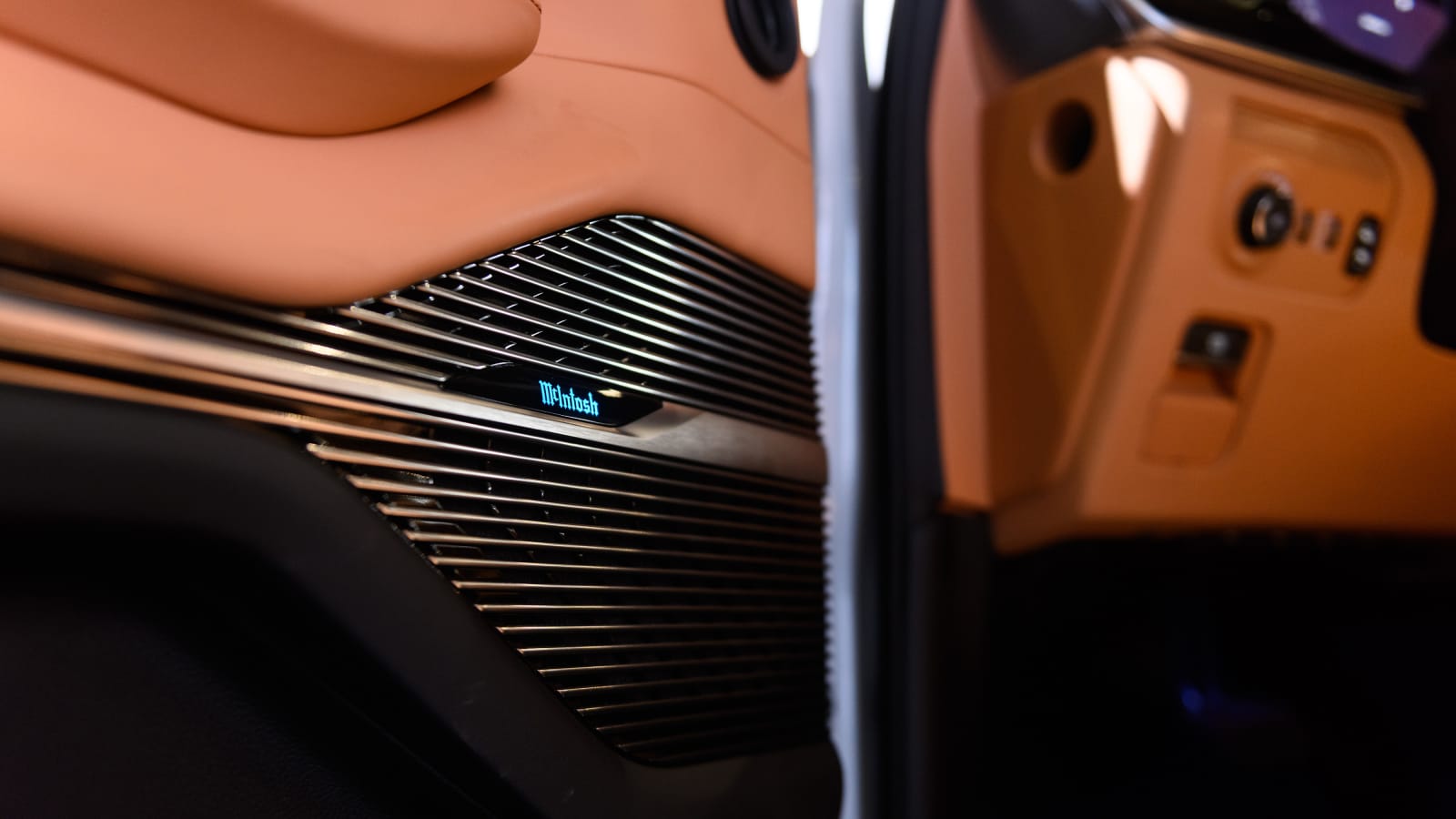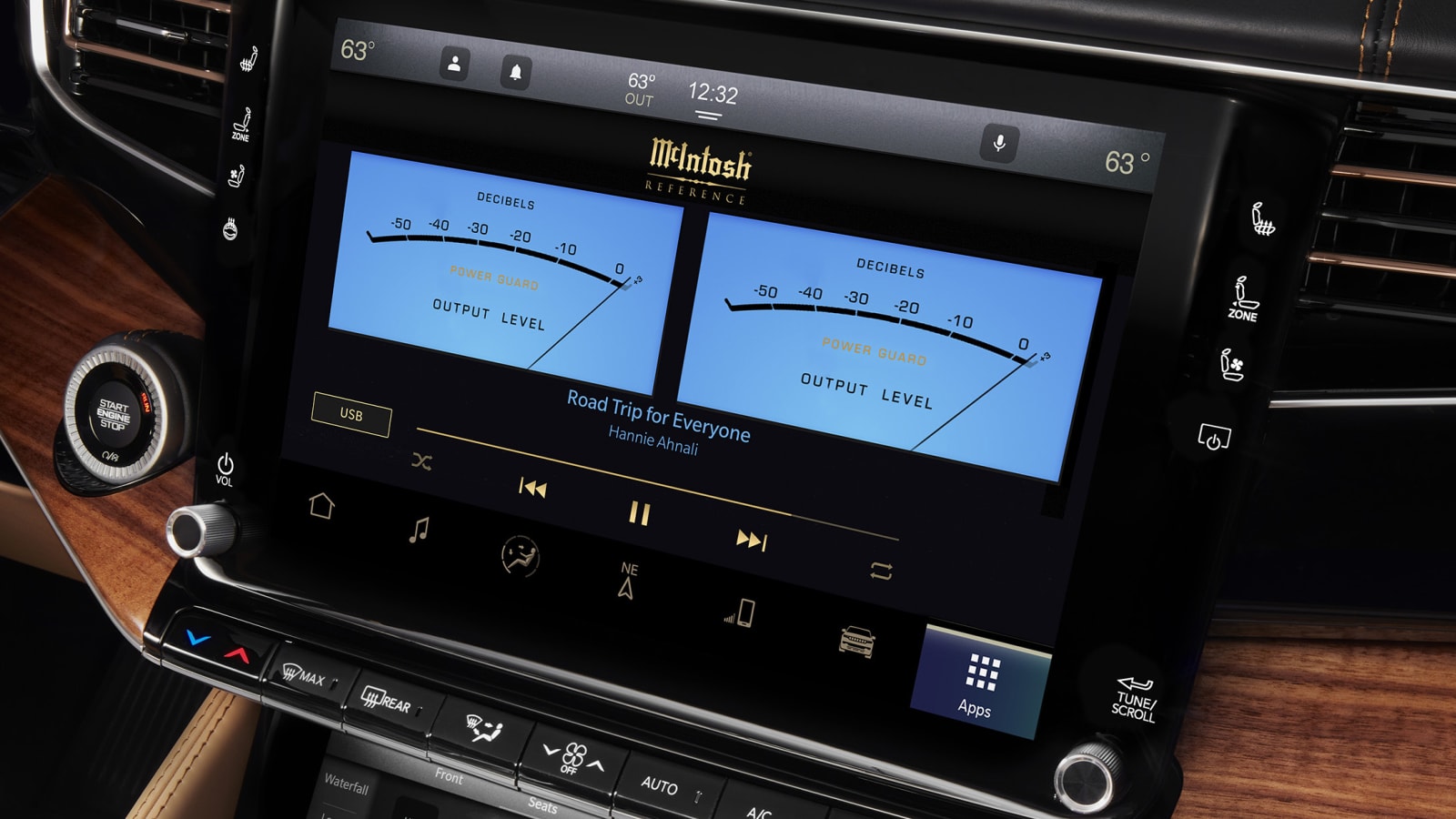Evaluating audio systems as a car reviewer is sticky business. Even if my colleagues and I have listened to hundreds (if not thousands) of audio systems over the years, we’re not audio professionals. There are folks out there whose job it is to be those audio professionals, and we should listen to them.
But! There are also people like me. I don’t have that professional ear, but I’ve had the privilege of listening to the best premium sound systems in the business, and have always been obsessed with high-quality audio, whether in a car, home theater or through headphones. And I’ve come to see one sound system as the holy grail of car audio: The McIntosh 23-speaker system in the 2022 Jeep Grand Wagoneer.
Yes, this article gets the opinion tag, because this is strictly an opinion. Some audiophile can perform professional and instrumented testing to determine what’s truly the “best.” However, most of us just want a system that sounds as incredible as the price we pay for it. For me, the new McIntosh system can’t be touched.
If you’re into high-end home audio, you know McIntosh. They’re among the best in the business, and they’ve been at it for over 70 years. Not only that, but McIntosh is an American company, and its gear is made in America. Pairing up with Jeep to put its system in a car that is literally bearing an American flag on its flanks just makes sense. This is McIntosh’s first foray into automotive in a long time, too, as its last full-car system was in the Ford GT of the 2000s. That car was more about the sound from its rumbling V8. This time around, McIntosh is all about impressing luxury buyers in a six-figure Jeep.
I got to listen to the Grand Wagoneer’s audio system in a controlled environment at the Chicago Auto Show last year, and while wildly impressed, I wanted to wait until I had the chance to listen to it in a finished car while cruising down a highway to make any declarations. Before we get to the in-car audio driving impressions, though, I managed to sit down with McIntosh CEO Jeff Poggi for a chat about how this system came to be, and what McIntosh brings to the table.
“So we took this prototype car, and we brought it to Detroit,” Poggi said. “It was in a Jeep Grand Cherokee, and we brought a system like this, a two-channel Mcintosh audio system, set it up in a room, and we sat down with Sergio Marchionne, Ralph Gilles and Harold Wester. We gave them the demo, so here’s what we do in two-channel audio, here’s what we can do in a car, we think this can be a really interesting brand match.”
And just like that, Jeep was in. Back then (over four years ago), McIntosh didn’t realize it was stepping into the Grand Wagoneer project, but all the FCA execs knew that this nutty audio system would be going into its first true luxury vehicle. Over the years, Poggi said, Jeep really embraced McIntosh as a brand and let them run with the project.
“Everything in this audio system is custom-designed for this experience in this vehicle,” Poggi told us. “And they were super partners. They really allowed us to get the products placed where we wanted to for the best acoustics, that gave us all the capabilities we needed to give that goosebump experience that you can get, and we brought core McIntosh technologies from the home to the car, which was important for us to make it really authentic.”
When I eventually did hop into the new Grand Wagoneer for a seven-day test with this 23-speaker, 1,375-watt system, my feelings from the Chicago Auto Show were affirmed. The range of songs it could play with beautiful accuracy and control was second to none. Challenge it with overwhelming bass like you’d find in “Sail” by AWOLNATION, and there isn’t a hint of distortion or dip in quality. Fire up a more delicate song with details you know will only come through with great audio equipment, and the clarity and control is astounding. “Landslide” by Fleetwood Mac was epic — the guitar just surrounds you, and the lyrics add to the feeling of warmth to the entire stage. I really couldn’t find a single song that provided any issues for this audio system. And just like a set of new headphones or speakers can do, listening to many of my favorite songs was almost a new experience altogether. I just wanted to keep listening to more and more songs to hear how this audio system would elevate them.
And before you think that this audio system is just some fancy speakers with the McIntosh name on them, Poggi explained the ways that this system uses key technology from McIntosh’s mega-expensive home systems. Poggi detailed two of the highest-impact technologies for us: Low Distortion/High Performance (a unique motor design) and Power Guard (a limiting software).
“So in the loudspeaker, you have a magnet and a coil,” Poggi said. “And that’s the basic motion of how a loudspeaker moves back and forth, putting electricity through the windings to move the magnet, and we have a special design patent around that motor design that allows us to push higher sound pressure levels out of that transducer to give us really, really low distortion. That’s core to McIntosh. We want to give you the most impact, the most dynamic range with no distortion, coloration, none of that.”
You can crank up the volume as high as you dare in the Grand Wagoneer, and those speakers will play along with you, just as Poggi says, without any distortion or deterioration in quality whatsoever. This control can also be attributed to the next McIntosh tech Poggi detailed: Power Guard.
“Power Guard is basically a limiting software that we’ve developed that makes sure the amplifier never overdrives the speakers so that it causes problems,” Poggi said. “You don’t want to have the amplifier push too hard and have the loudspeakers break up with distortion, so there’s a hallmark in the amplifier, a red light, and when the Power Guard is engaged, the red light comes on in the amplifier. The Jeep team actually took it all the way to the extreme, and not only did we put Power Guard in the amplifier of the vehicle, but then implemented the red light on the UI, so that you can actually see, as a consumer, when the Power Guard is engaged.”
That is some seriously awesome stuff right there for an audiophile. This attention to detail is seen elsewhere throughout the Grand Wagoneer’s cabin, too. The door speaker grills are backlit in McIntosh’s signature blue color. Green McIntosh logos are visible as branding, and the speakers have similar aluminum trim as what appears on the company’s home audio equipment. Even the volume knob is designed to replicate the tuning knobs seen on McIntosh systems.
And then there’s the user interface in the Grand Wagoneer’s large infotainment system that takes it another step forward. You can bring up a screen that displays the sound meters if you’re extra nerdy, like myself.
Not only is the classic two-channel stereo sound quality the best, but the software running features like the 3D surround sound was tuned masterfully, too. The big Grand Wagoneer’s cabin is effectively turned into a glorious concert hall, as the music bounces all around you in such a natural and proper manner. There are plenty of audio systems that offer up gimmicky surround sound, but the McIntosh’s system does not belong to that category. It’s so much better.
No matter what kind of driving I was doing — sitting at a light or cruising on the highway — the McIntosh system in the Grand Wagoneer offered up the best car audio I’ve ever heard. The price of admission is steep with the 23-speaker system only standard on the Obsidian and top-of-the-line Grand Wagoneer Series III (optional on Series II as part of a $3,995 package), but I don’t think that anything even remotely close to this Jeep in price ($109,025 as tested) is capable of offering up a superior audio experience. The premium sound arms race just keeps picking up steam, though, and I’m excited to see what comes next.
Related video:
Source: www.autoblog.com




